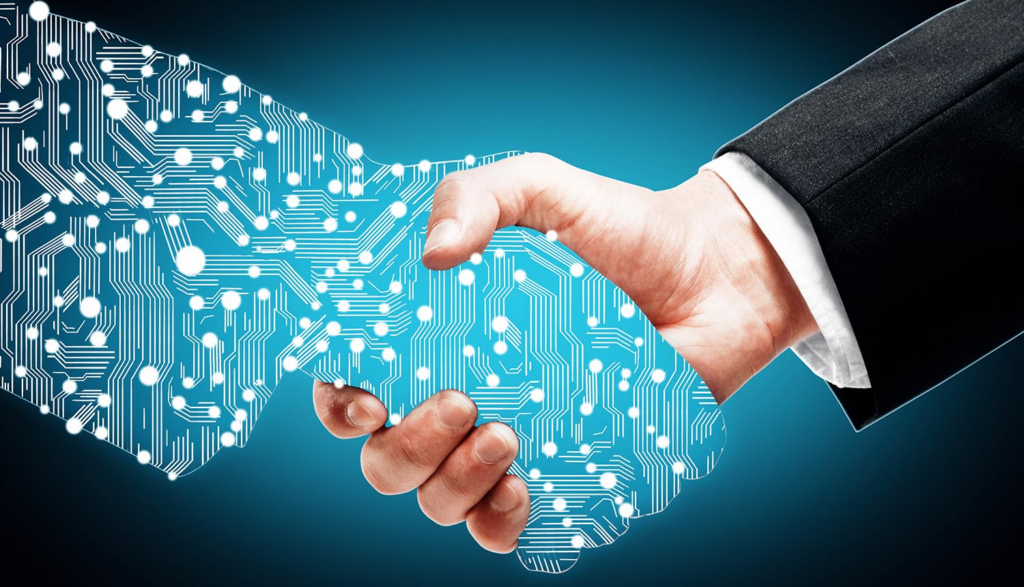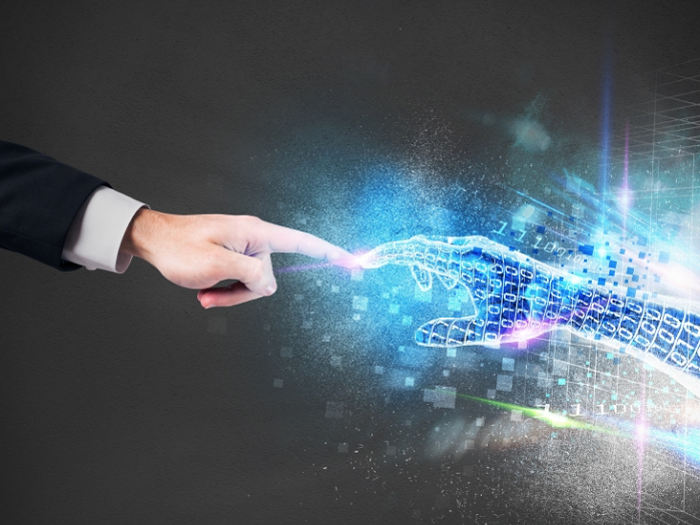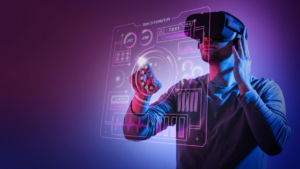Anúncios

Since its creation in the 1950s, artificial intelligence (AI) has evolved significantly. What was once just a fascinating theory for computer scientists and academics, such as the renowned Alan Turing, has now become an increasingly present reality in our society.
At this moment, artificial intelligence is increasingly integrated into our lives, thanks to the emergence of technologies such as facial recognition, autonomous cars, voice assistants, chatbots, industrial automation and algorithms on social networks. These innovations are also related to machine learning.
Anúncios
Artificial intelligence is widely used in various sectors such as technology, finance, healthcare and transportation. Its ability to solve complex problems and perform repetitive tasks has been used by companies with the aim of improving processes and products.
Development of more innovative products.
The use of artificial intelligence has revolutionized the way companies operate and allowed them to improve efficiency and develop more innovative products.
Anúncios
Although the use of AI technology in the workplace is widely adopted, there are concerns about the potential negative impacts if its implementation is not done correctly.
Artificial intelligence offers several advantages, such as reducing the time needed to perform tasks, 24/7 availability of technology, improvements in decision making and reduction of human errors.
However, it is important to consider the disadvantages involving the implementation cost, which includes investments in advanced hardware and software. Furthermore, there is a debate about the possible decrease in human creativity and the environmental impacts resulting from intensive energy use.
Possibility of replacing human beings

However, one of the biggest obstacles is public acceptance. Many people still distrust artificial intelligence and some are even afraid of this technology.
The use of artificial intelligence raises concerns about the significant social impacts it can generate, including the possibility of replacing human beings in the future. Additionally, there are ethical concerns related to its use.
As people become increasingly familiar with the features and potential benefits, acceptance is likely to increase as well.
Artificial intelligence is often discussed for its impact on jobs. While it can create new opportunities, it can also automate tasks traditionally performed by humans.
According to a report by the World Economic Forum, it is estimated that the use of artificial intelligence could have a negative impact on the elimination of approximately 75 million jobs by 2022. On the other hand, this same report suggests that artificial intelligence could also generate around 97 million new jobs by 2025.
In Brazil, the use of artificial intelligence is becoming increasingly common. Approximately 25% of large companies have already adopted this technology.
According to a study by the Brazilian Association of Software Companies (Abes) and the International Data Corporation (IDC), investments in artificial intelligence in Brazil reached the US$504 million mark in 2022.
Furthermore, it is important to highlight that the country in question is a leader in the use of artificial intelligence among Latin American nations.
Artificial intelligence has brought tangible benefits
According to an analysis carried out by the British website Tortoise Media, Brazil occupies 39th position in the ranking of capacity for developing artificial intelligence technologies. This position puts Brazil ahead of the countries Greece and Slovakia.
In Brazil, artificial intelligence has brought tangible benefits, especially in the areas of health and finance. Through it, it is possible to analyze patient data and offer personalized treatments, in addition to detecting fraud.
The use of artificial intelligence has also boosted the emergence of fintechs that automate processes for identifying investment opportunities, as is the case with Open, which offers recommendations based on robo-advisors.
Artificial intelligence brings broad opportunities for companies and individuals. It can help businesses improve customer service by offering personalized support. Furthermore, it can benefit individuals by providing quality healthcare and education, among other benefits.
Despite the possible benefits of artificial intelligence, it is important to also consider the concerns that arise with its use. There is the possibility of being used to create autonomous weapons, considered more dangerous and unpredictable. Furthermore, there is also concern that AI could perpetuate prejudice and discrimination. It is essential to address these aspects when exploring the applications of this technology.
Despite the concerns and challenges, it is undeniable that artificial intelligence is an incredible tool, with revolutionary potential for our way of life and work. The benefits provided by this technology are evident.
Quoting physicist Stephen Hawking, he stated that the arrival of powerful artificial intelligence could be the best and worst thing that has ever happened to humanity. However, we cannot yet determine what the outcome will be.
As we move forward in the creation and application of artificial intelligence, it is essential that we are aware of the benefits and risks involved. We must take advantage of opportunities that arise, minimizing and facing possible threats.
It is crucial to ensure that artificial intelligence is used ethically, aiming for the collective good and not individual benefits. As we move into a world where this technology becomes more prevalent, it is important to ensure that its use contributes to a better, smarter life.



